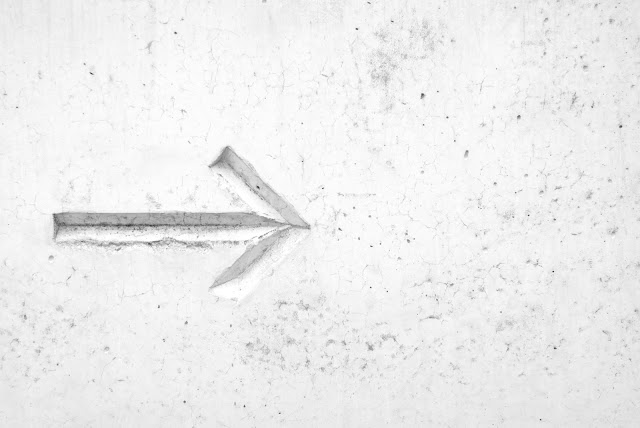 |
| Image from Hello I'm Nik | unsplash.com |
Starting a new year brings forth a flush of good intentions and vistas of possibility.
More often than not, however, there are plenty of tasks that accumulate across time and are still hanging around at the end of 2021, and are even now outstaying their welcome at the beginning of 2022. Ironically, considering the topic of this post, one of those things I had to do was finalise this piece and have it ready to go when we started publishing the RED Alert again in February - and here that task still is! Ah, well. It happens to all of us!
Back in December, I asked some La Trobe colleagues how they ensured they started a new year of work effectively. It can be hard at the end of a year, particularly the second COVID one, to pull together the power to plan the what comes after the summer break. These wonderful colleagues came through for me and shared their strategies and planning moves for heading into a new year - do they chime with what you do?
The most common response was that many researchers did a 'clearing of the decks' late the previous year (before people walked out the door on their holidays) or first thing in the new year.
ARC Future Fellow Mandi Cooklin from the Judith Lumley Centre said she liked making sure she had the 'gremlins' off her plate and no nasty surprises lurking as she starts her work in the new year. Danilo de Oliveira Silva, a Postdoctoral Research Fellow in the La Trobe Sport and Exercise Medicine Research Centre, says:
At the beginning of the year I block some time to organise and "clean" my computer folders and files aiming for a fresh start. This makes my whole year more efficient and motivates me. My rule of thumb to check if I am organised enough is "I need to be able to find any file in my computer in 40 seconds.
Alicia King, a PhD researcher in Social Work and Social Policy, shared:
My biggest fear in starting the year is opening my computer on the first day back and not knowing what I’m doing. I usually have a few things at the end of the year that I know will take more mental space and energy that my colleagues or I have. It’s my practice to keep a running 'to -do' list during the year and, in the final weeks of the year, I earmark those things that can wait until the new year.
On my last day of work, I rewrite a fresh list, so I know what I’m doing my first day back. I also try to be realistic and don’t expect to get focussed work done the first day back (or any Monday in a normal week) as it’s usually about making plans, responding to e-mails and getting the ball rolling on any collaborative tasks.
However this process happened across people's contexts, a core element of enabling effective work had consistency: having informed control of what needs doing.
Knowing how you're going to give yourself the best chance to do it is also very important. Jasvir Nachatar Singh, a Senior Lecturer in the School of Business says:
I am a planner, so I usually plan out what I need to do in December itself (every year, actually), so that I am not overwhelmed with work. In my diary, I allocate my time for my teaching, research, and leadership activities. My sanity stays intact through planning and I can say NO to 'shiny projects'.
How you tackle this workload is highly individual and could mean you stop work when the University shuts down and don't touch serious work till February, or it could mean you're doing 'Shut up and write' with colleagues on Christmas Eve or seeing in the new year while writing. There are no hard and fast rules around when you must be working but it's good to take a step back once in a while to observe your own practices. Michelle Cimoli, a PhD researcher in the School of Allied Health, Human Services & Sport (Discipline of Speech Pathology) commented:
As the earth starts another trip around the sun, I’ve been reflecting on the past year and the intention I would like to bring to 2022. I bought myself a new notebook (2022 will be the year of the #BulletJournal!), created a list of current projects, and have made inroads to taming my email Inbox. In addition to having a clear sense of what I’ll be ‘doing’ in 2022, I’ve decided I need to ever so gently, ever so kindly, sharpen the focus on my mental health and self-care by paying more attention to ‘being’ – being present, honouring the moment, and giving this moment my fullest attention (as Eckart Tolle would say).
I am hoping this intention helps me develop more of a discipline in doing one thing at a time, and giving my fullest attention to this one thing. Less multi-tasking. Less unproductive thinking.
Having the intention to work more mindfully and view your practices more holistically can make a big difference to sustaining your ability to do good work and live an enjoyable life. To motivate yourself to get things done with enthusiasm, there's nothing better than a well-planned, fabulous reward when you've completed that work. Made Rimayanti, a PhD researcher in Physiotherapy, said:
I think my inspiration for the new year is to see my family again in Bali. I haven’t seen them for 2 years, and I have blocked 2 months in June 2022 to see them. I’ll make sure I smash my goals before then so I can enjoy what little precious time I have with them!
To work effectively, then, requires a range of elements that have nothing to do with putting in X number of hours in a day or week. It's about organising and prioritising, having time to recharge and rest, and giving yourself incentive to meet your goals.
All the very best for starting 2022 with a bounce in your step!
---------------------------
If you're looking for some structured research planning to help you meet your goals and map productive directions for your research, you can check out La Trobe University's Individual Research Plans (IRP) [INTRANET link].
---------------------------
Dr Tseen Khoo is a Senior Lecturer in research education and development with the RED team at La Trobe University. Melbourne. She researches in the field of critical university studies and has published on early career researcher experiences, digital academic identities, and racial diversity issues.
Tseen created and manages the Research Whisperer with Jonathan O'Donnell. She's on Twitter at @tseenster.

Comments